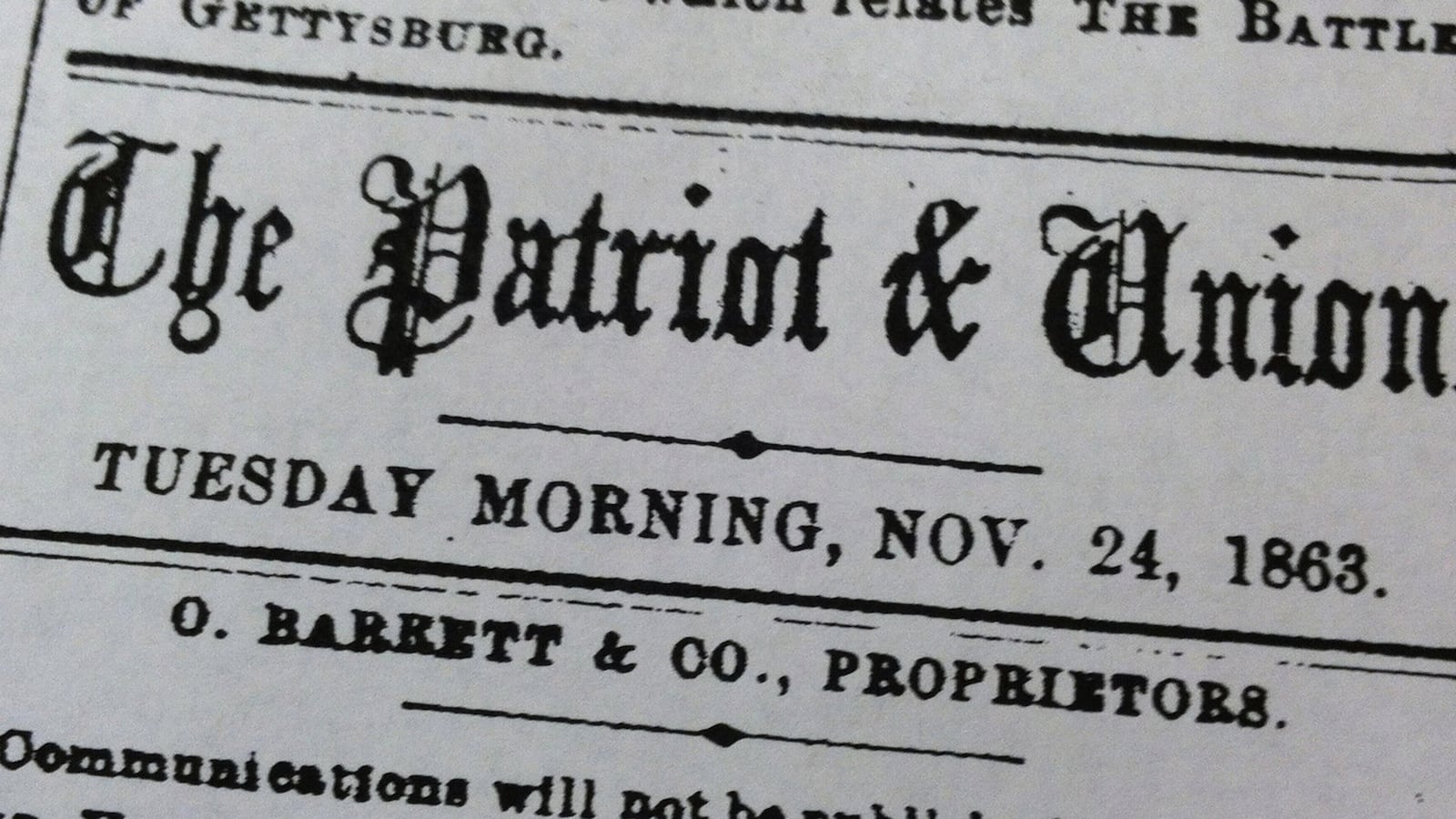On Thursday, a Pennsylvania newspaper retracted its panning of President Abraham Lincoln’s historic Gettysburg Address in 1863. His “silly remarks” deserve “a veil of oblivion,” the Patriot-News’s predecessor wrote 150 years ago, of what’s now considered one of the greatest speeches in American history. In its mea culpa, the paper said it regretted ignoring the “momentous importance, timeless eloquence and lasting significance” of Lincoln’s words. But this mistake isn’t the only moment of great historical importance to be dismissed outright by leading publications and institutions. Here are 10 revolutionary inventions spurned by folks who would now be biting their tongues if they saw the way the products they dismissed have transformed modern life.

THE TELEPHONE
The device we now use many times every day was absolutely ridiculed by critics.
In 1865, a Boston newspaper wrote of a man arrested in New York “for attempting to extort funds from ignorant and superstitious people by exhibiting a device which he says will convey the human voice any distance over metallic wires so that it will be heard by the listener at the other end. He calls this instrument “a telephone,” it went on, concluding that: “Well-informed people know that it is impossible to transmit the human voice over wires as may be done with dots and dashes of Morse code, and that, were it possible to do so, the thing would be of no practical value.”
In an 1876 internal Western Union memo, the telegraph company famously wrote: "This 'telephone' has too many shortcomings to be seriously considered as a means of communication. The device is inherently of no value to us."
At the same time, the Brits were sure their counterparts across the Atlantic could make use of the device, but they saw no necessity. "The Americans have need of the telephone, but we do not. We have plenty of messenger boys," said Sir William Preece, chief engineer of England’s Post Office in 1876.
TELEVISION
"The problem with television is that people must sit and keep their eyes glued on a screen; the average American family hasn't time for it," The New York Times argued in a 1939 editorial. They deemed it would “never be a serious competitor of broadcasting.”
CARS AND TRAINS
Plenty were ready to dismiss the usefulness of strange horse-less transportation methods when they first emerged.
In 1899, Literary Digest asserted the limited role cars had in society: “The ordinary "horseless carriage" is at present a luxury for the wealthy; and although its price will probably fall in the future, it will never, of course, come into as common use as the bicycle.”
One-third of a century earlier, the Quarterly Review had an even more strongly worded dismissal of the train. “What can be more palpably absurd than the prospect held out of locomotives traveling twice as fast as stagecoaches?” it wrote in 1825.
And, when cars did prove themselves, Business Week magazine was quick to dismiss a country that would soon become a car-producing giant. "With over 50 foreign cars already on sale here, the Japanese auto industry isn't likely to carve out a big slice of the U.S. market," it predicted in 1968.
TALKIES
"Who the hell wants to hear actors talk?" Harry Warner, co-founder of Warner Brothers, scoffed at his brother Sam's suggestion that the company transition into movies with actors speaking. That was 1927, the same year the first talkie was released.
ROCK ‘N’ ROLL
Parents across America probably breathed a sigh of relief when, in 1955, Variety erroneously wrote of rock ‘n’ roll: “It will be gone by June.” Seven years later, in what must be one of the most expensive mistakes in musical history, Decca Records famously rejected mop-topped Liverpool transplants, The Beatles, who had come for an audition. "We don't like their sound, and guitar music is on the way out." The band was signed to EMI and the rest is history.
ONLINE SHOPPING
“Remote shopping, while entirely feasible, will flop,” Time magazine boldly asserted in 1966, long before the e-commerce industry boom. Why? The boredom of housewives, of course. “Because women like to get out of the house, like to handle merchandise, like to be able to change their minds."
SPACE TRAVEL
“A rocket will never be able to leave the Earth's atmosphere,” The New York Times wrote in 1936. Sixteen years earlier, the editorial page of the paper had mocked Robert Goddard’s idea that a rocket could function in a vacuum. It was a viewpoint retracted in 1969, noting that “Further investigation and experimentation have confirmed the findings of Isaac Newton…”
THE INTERNET
Here’s one soothsayer who had the chance to see his prediction mocked. Robert Metcalfe, inventor of Ethernet, wrote in a 1995 column for InfoWorld that: "I predict the Internet will soon go spectacularly supernova and in 1996 catastrophically collapse." Four years later, he literally ate his words when he put a copy of the declaration in a blender on stage at the WWW Conference and consumed it.
SMOKING
In 1954, the National Cancer Institute issued a comforting statement to a country full of chain-smokers: “If excessive smoking actually plays a role in the production of lung cancer, it seems to be a minor one.” Ten years later, the U.S. Surgeon General published a report finding strong connections between cigarette smoke and not just lung cancer, but also bronchitis, emphysema, heart disease, underweight newborns, and other maladies.
ATOMIC ENERGY
In 1938, Fortune magazine was disparaging about the future uses of atomic energy. “At present, few scientists foresee any serious or practical use for atomic energy,” an article read. “They regard the atom-splitting experiments as useful steps in the attempt to describe the atom more accurately, not as the key to the unlocking of any new power.”





